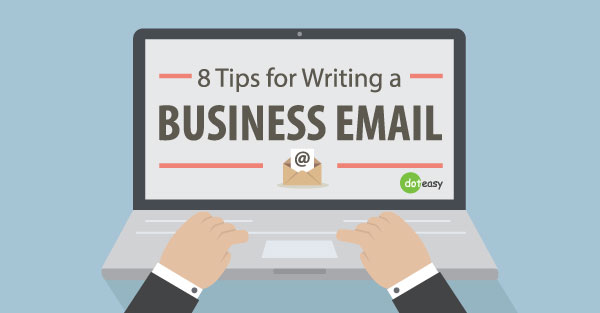If writing a business email often has you frozen in fear at your desk, constantly wording and rewording a single line, we’ve got your back. Here are some tips to get you happily sending your next email with ease.
Don’t Underestimate the Value of a Custom Email Address
Especially for the small business owner, having an email at your domain name gives you credibility and keeps your company name in the receiver’s mind.
Keep Subject Lines to the Point
Don’t leave the subject out! A good subject could be the difference between your email being opened and adored (or at least, read), or being sent to trash bin purgatory. Include information on what the email is about and entice the reader to open it.
Examples:
- Appointment for Dr. Joan on May 16th
- Meeting on Feb 27: Reply to confirm
Above all else, DO NOT WRITE THEM ALL IN CAPS. See what I did there?
Keep Emails Short and Sweet
Obviously, this is dependent on the content you need to send, but aim to write concisely. Keeping your emails to 150 words is a safe bet.
Save Emoticons for Your Best Buds
Use a professional tone when writing your emails, especially when writing to a distant business acquaintance. Remember that written words can be easily misinterpreted- when in doubt, use a respectful and formal tone!
Reply Quickly or Buy Time
If you need time to think about a matter further, reply in a timely manner with a quick message to let them know you’ve received their email.
Example:
– “Thanks for your email. I will discuss this further with my colleagues and reply in more detail later.”
Use “Reply All” With Care
Setting up a meeting with a few colleagues? Go ahead and reply all. However, a surefire way to annoy many people at once is to use “reply all” unnecessarily, clogging up their inbox with a never-ending thread of emails.
Don’t Be Afraid to Pester
But don’t be pester-y about it. If you haven’t received a reply in over a week, there’s no harm in following up to see if your original message was lost or accidentally sent to the bin.
Avoid the Back and Forth Game
Using email can be a great way to send information easily or to set up a meeting for future communication – but if you anticipate that an issue will take a lot of back and forth messages, it may be best to resort to alternative communication methods.

